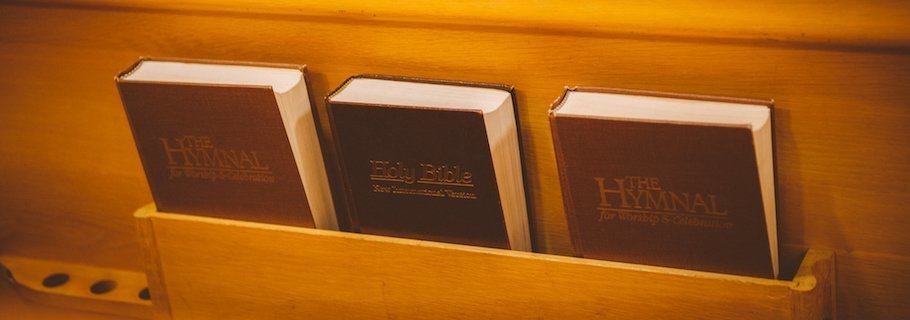
Recently, I read an article that made the case for bringing back
hymnals to the local church. It was excellent. You can read it here- Why
Churches Should Ditch Projector Screens and Bring Back Hymnals
To be clear, there is room for both but sadly the issues of today in corporate worship gatherings are more than the return of the hymnals to the pew. However, I'm in favor of bringing them back!
I'm going to offer a few suggestions on this. 
1. Let Scripture regulate the gatherings of the church (its leading officers, song choices, prayers offered, ordinances administered, and sermons), not trends or creative ideas. It will only further strengthen the congregation's view of the sufficiency of the Scriptures.
2. Let the hymns we sing be rich in biblical theology, the gospel, and the glory of God. Rehearse the precious and specific doctrinal truths that lead to deep affections for Christ in our music.
3. Let the songs (rooted in the Word) be designed for the congregation's participation, edification, and unity. Pastors, in my opinion, should be involved in preparing the service order in accord with the sermon text.
4. Let's hear the church more! Let the leading of the church in their songs not be about the artistry of an individual(s), nor based on their musical gifts. Instead of a group or an individual holding their own concerts, let God's people simply be featured and faithful. The gospel joys do not merely belong to a few gifted musicians but to the whole church. Feature the bands, choirs, and instruments less and feature the congregation's voice more!
5. Let the gathering of the body not be called "a worship experience." Not only does that sound weird and consumeristic, but it sounds like what Israel wanted when they made the golden calf. Let the corporate gathering instead be what it is supposed to be and that is His covenant people gathered in His name on His Day to praise his glory and preach His gospel! Again, the Word is to be central, not our experience.
6. Let the ordinary means of grace work among us. I'm afraid that most don't think this is an issue for their church because all they know experientially is a glorified youth gathering for adults; a youth camp experience repackaged. A lot of churches sadly don't know the goodness of the ordinary means of grace that is ours in the preaching the Word, reading the Word, singing of the Word, praying of the Word, and seeing of the Word (the sacraments). Like the way people who eat only junk food don't know they are malnourished, so is the church that misses the ordinary and ordained means of growth (Word and Prayer).
-Pastor Garrett

Comments